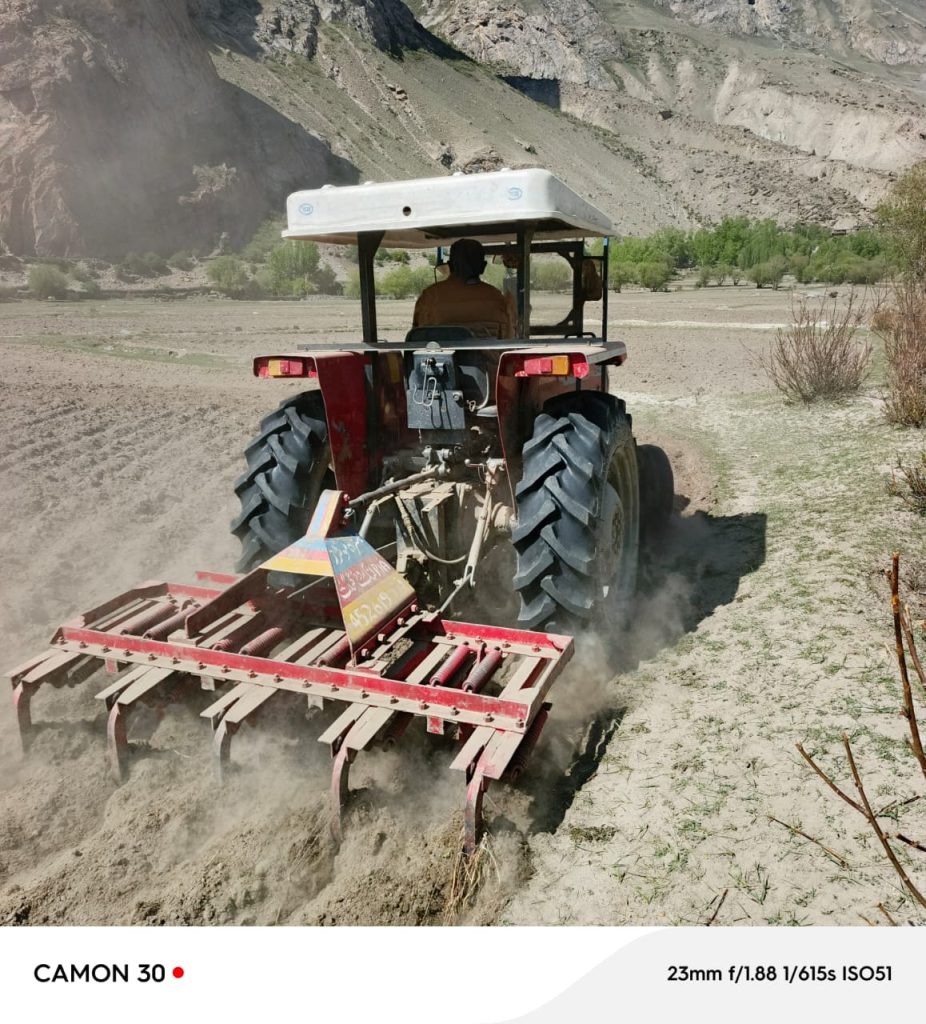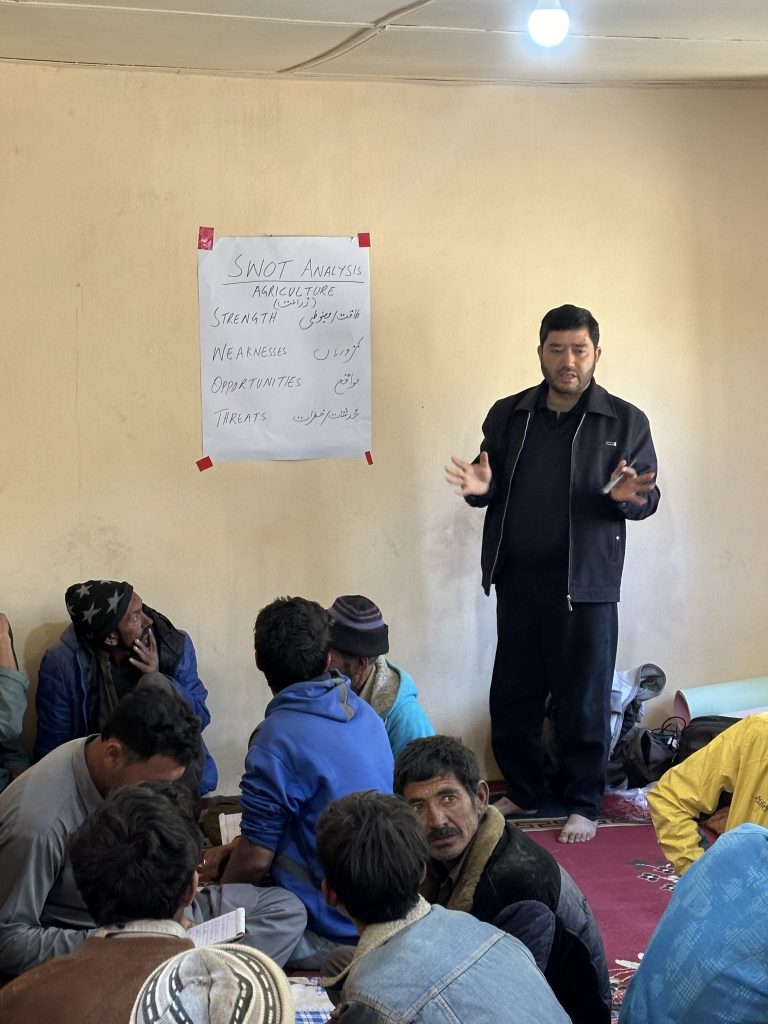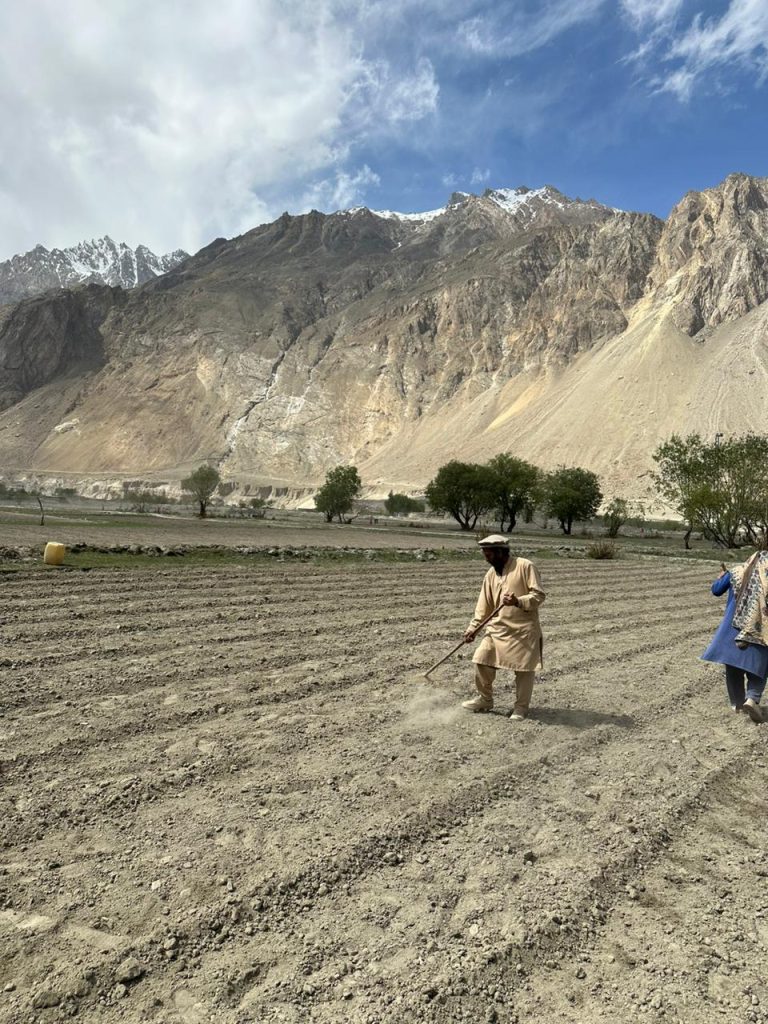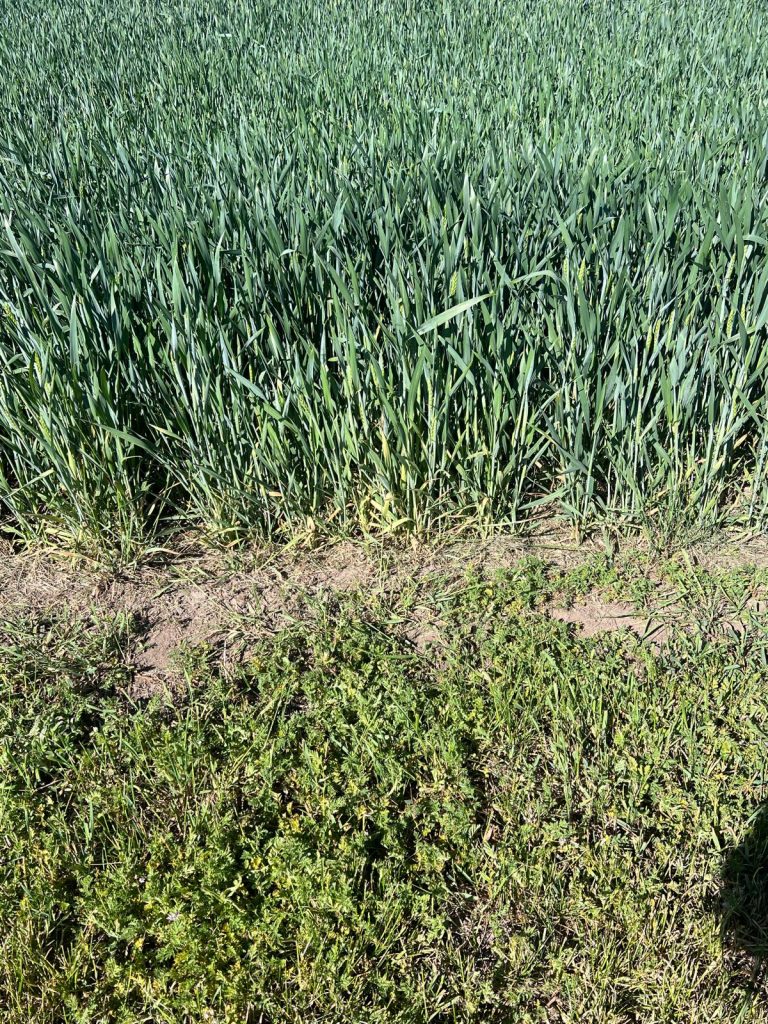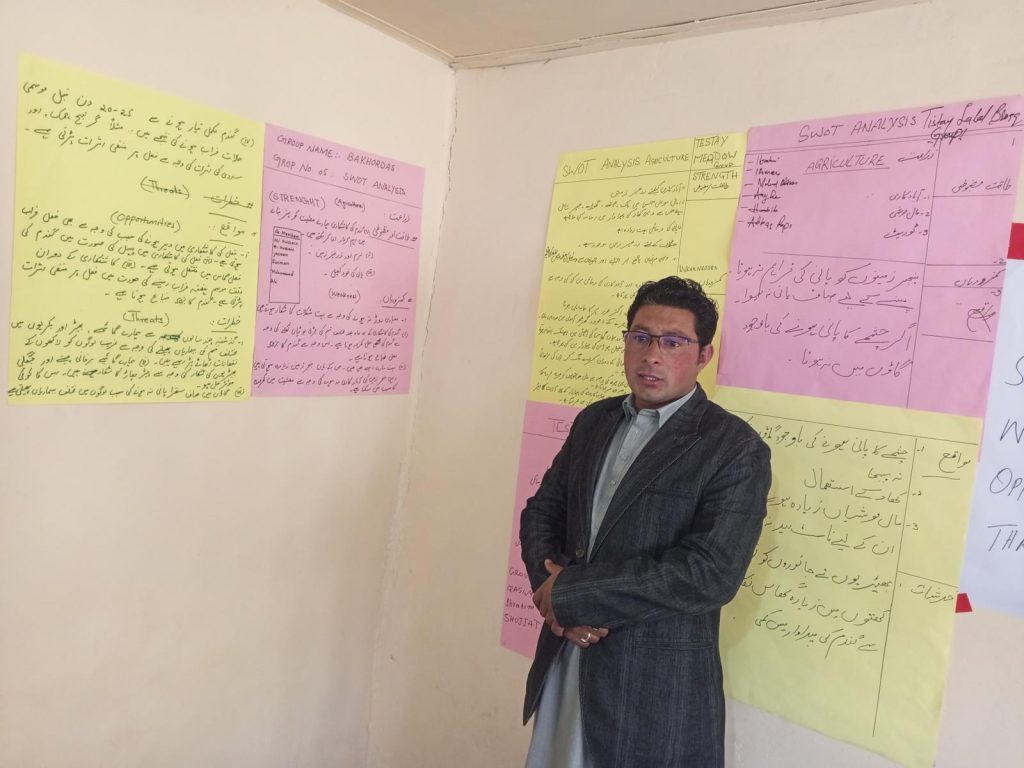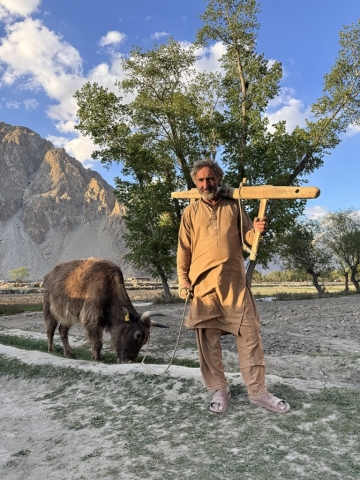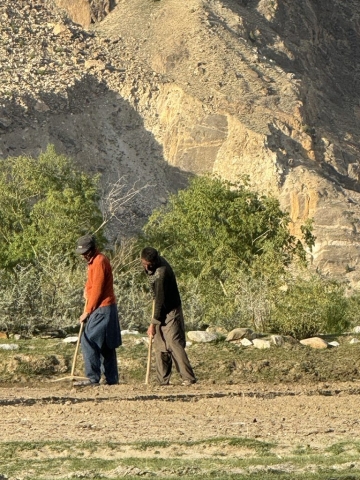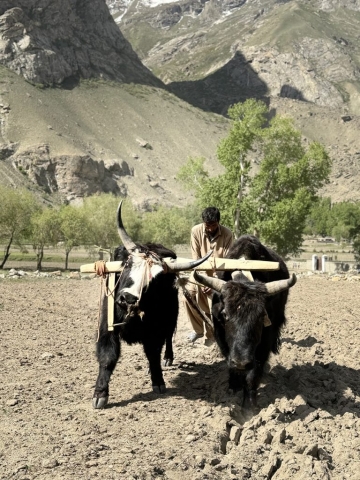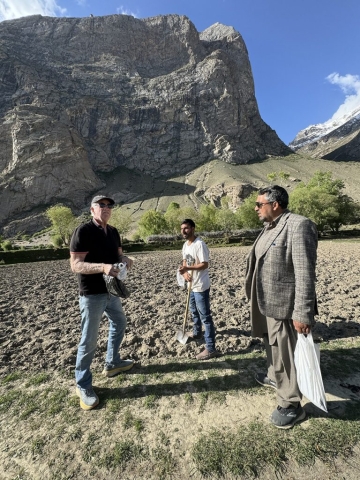Agriculture
Cultivating Resilience: A Path to Sustainable Agriculture
In many remote valleys, farmers face significant challenges due to limited access to resources, technology, and tools. These challenges can hinder their agricultural productivity and economic stability. However, with targeted training and support, we can empower these farmers to enhance their agricultural yield, improve their livelihoods, and achieve self-sustainability.
Understanding the Context
Farmers in these areas often rely on traditional farming methods, which may not be sufficient to meet the demands of modern agriculture. Limited access to information about best practices, crop management, and sustainable techniques can lead to lower yields and increased vulnerability to environmental changes. Our goal is to bridge this gap by providing practical training that is tailored to their unique circumstances.
The “Why”
In the fertile but challenging terrain of the Braldu Valley, agriculture is more than a livelihood; it’s a tradition passed down through generations. Families rely on time-honored farming methods to cultivate wheat and buckwheat, often using traditional wooden ploughs and locally produced fertilizers. However, these methods are labor-intensive and can lead to variable yields.
As many men work as porters during the peak season, the immense responsibility of farming, weeding, and managing the land often falls to women. Compounding this is the challenge of market access; remote geography makes it difficult for farmers to sell their produce at fair prices, hindering their economic growth. Our goal is to bridge the gap between tradition and innovation, empowering farmers to increase their yield, improve their livelihoods, and achieve self-sufficiency.
Our Approach: Partnership and Practical Learning
We believe in solutions that are developed with the community, not for them. Our agricultural initiatives are built on collaboration, responsive support, and real-world learning.
**Building Knowledge Together** In May 2025, BVF partnered with the regional Department of Agriculture to sponsor a dynamic two-day workshop. Bringing together around 50 local farmers, the sessions focused on practical analysis and collaboration. Together, we established three Farmer Contact Groups (for wheat, buckwheat, and tree crops/vegetables) to ensure knowledge is shared and support is ongoing.
**Testing, Learning, and Adapting** A core part of our work is testing what truly works in Testay’s unique environment. We provided improved seed varieties for demonstration trials, which yielded a vital lesson: innovation must complement local wisdom. We learned that the traditional wheat varieties, perfectly adapted over generations, performed better with local fertilizers than the new seeds. This reinforced our commitment to solutions that respect and enhance traditional knowledge.
**Responding to Urgent Needs** Our support extends beyond planned programs. In June 2025, when an outbreak of Foot and Mouth Disease threatened the region’s livestock—a critical family asset—BVF responded immediately. In conjunction with the Department of Livestock, we provided essential medicines and vaccines to protect the health of animals in Testay and adjacent villages.
Looking Ahead: Seeding Future Growth
Through our on-the-ground research and conversations with farmers, a promising new path has emerged: the introduction of **solar tunnels**.
These simple, cost-effective structures can protect crops from the harsh climate, allowing farmers to grow high-value vegetables out of season. This can significantly improve family nutrition and create new income streams. We are currently exploring a vocational program to install a demonstration solar tunnel at the school, providing practical skills to the next generation and showcasing a tangible path toward a more diverse and prosperous agricultural future.
